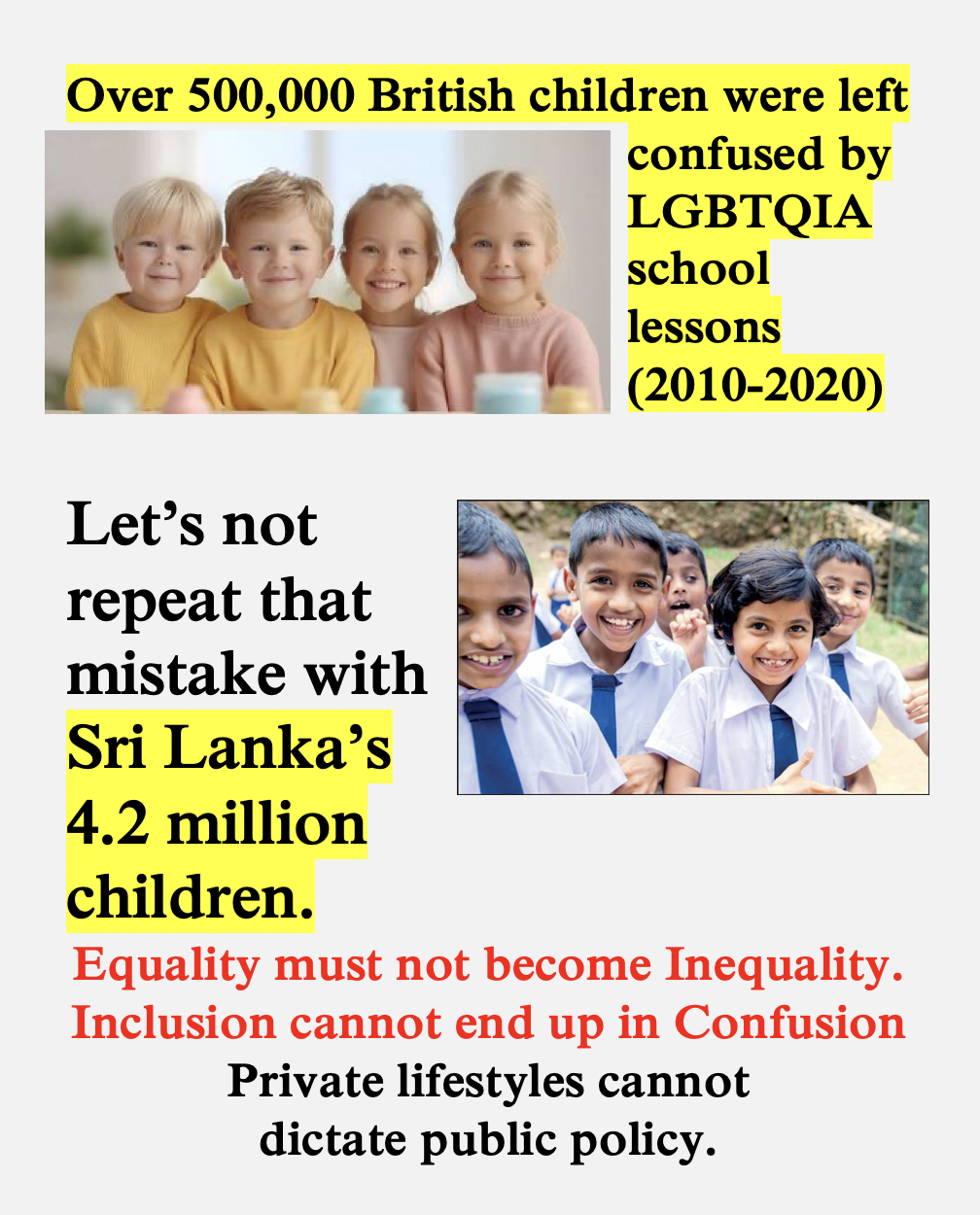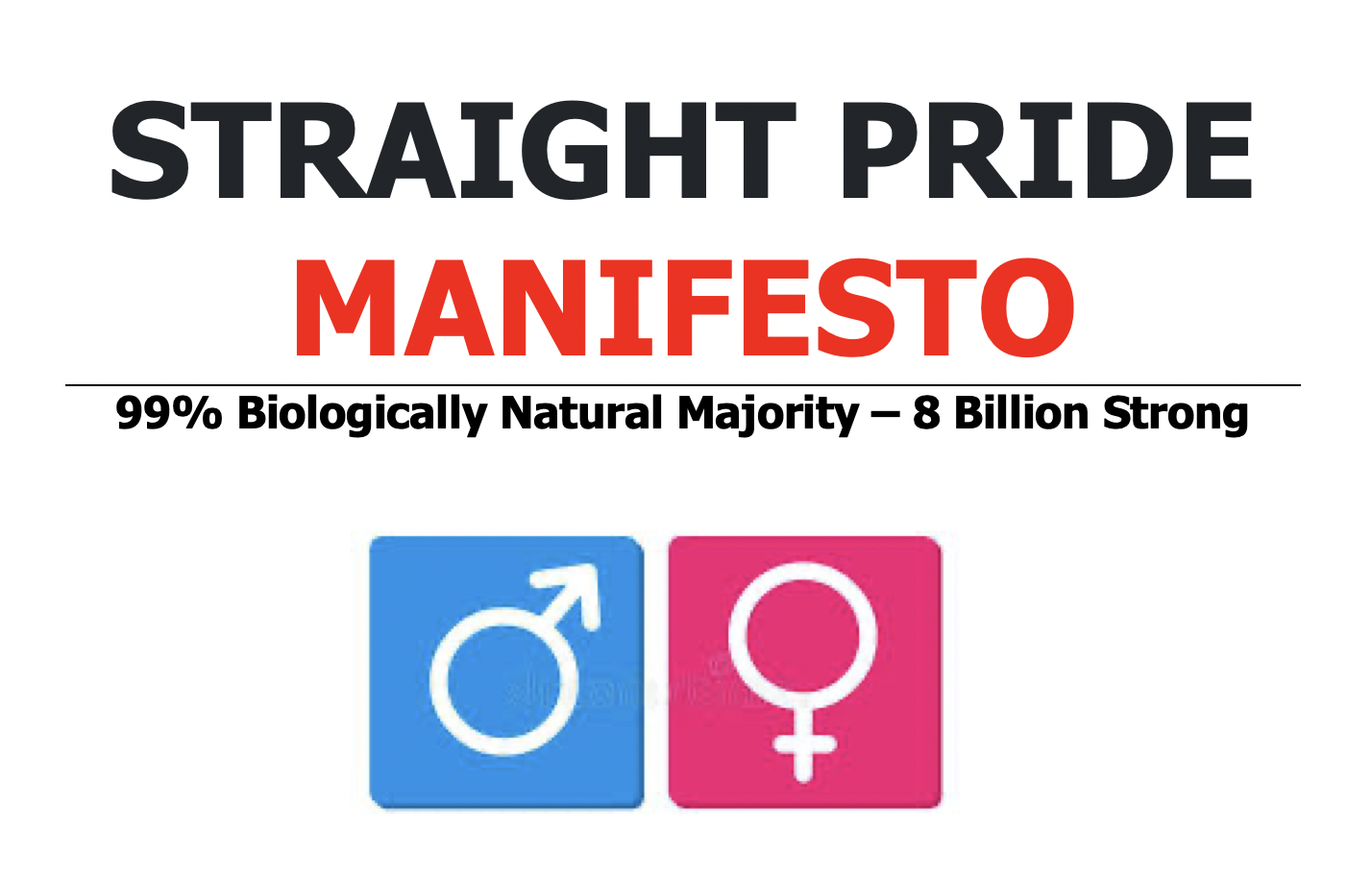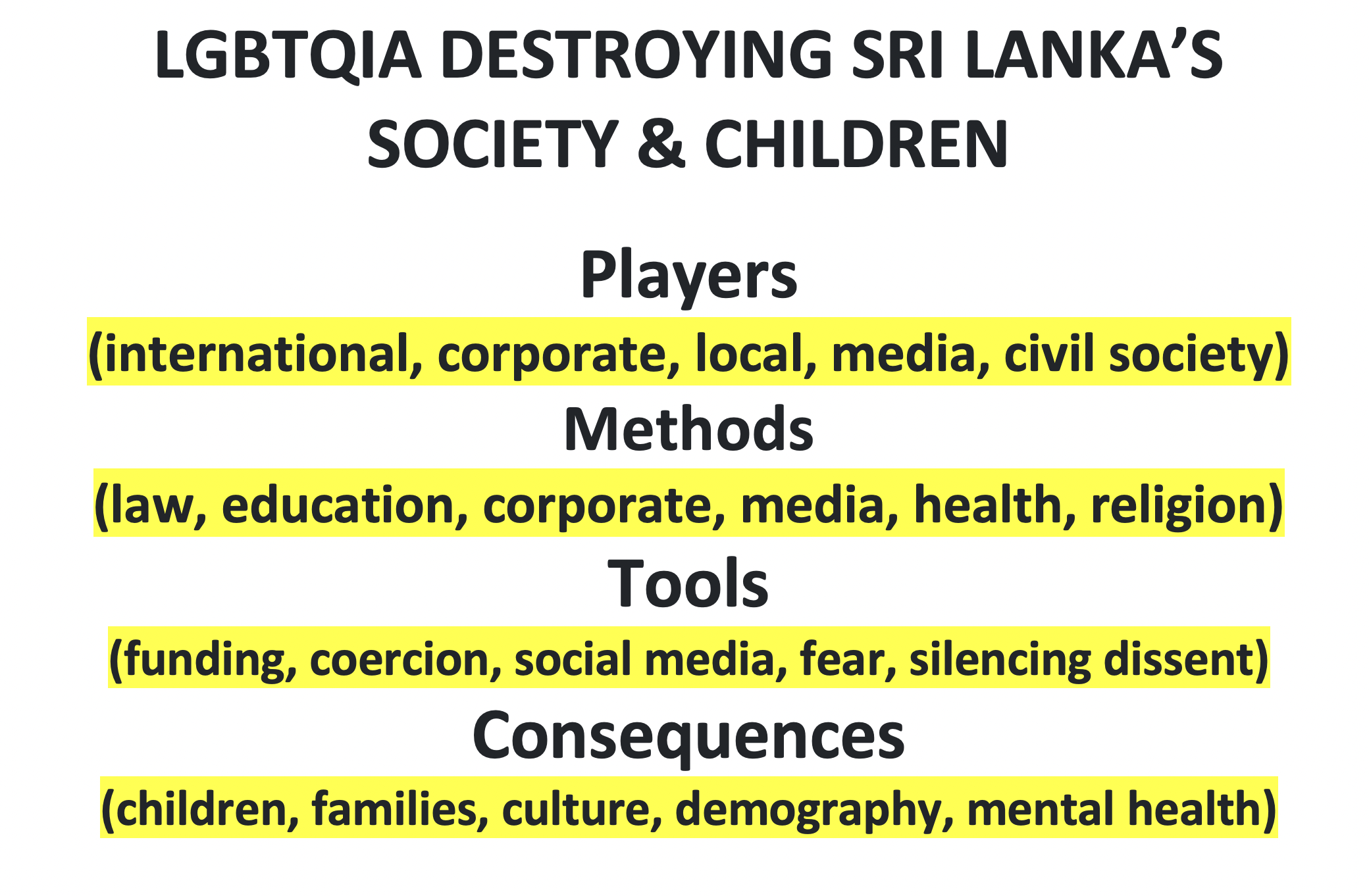Rebuttal to “Open Letter to His Eminence Cardinal Malcolm Ranjith on the Importance of Sexual and Reproductive Education for Women and Girls in Sri Lanka” by Jeewanee Kariyawasam.

This is a reply to the open letter with above title by Jeewanee Kariyawasam.
Jeevanie claims CSE protects girls and ensures their health and safety
- She frames it as a humanitarian and developmental imperative.
- She assumes that CSE reduces teen pregnancy, abuse, and mental health issues.
While proponents claim CSE protects adolescent girls from pregnancy, abuse, and poor health, there is no peer-reviewed evidence that UNFPA-style CSE produces these outcomes in countries with social, cultural, and religious contexts similar to Sri Lanka. Western experiences show that even decades of mandatory CSE have not eliminated teen pregnancies, abortions, or risky behavior. Therefore, advocating wholesale adoption of such programs in Sri Lanka is not evidence-based, but an ideological import with unproven benefits.
Exposing the UNFPA’s Global Agenda and Defending a Culturally Rooted Policy
- The Real Source of the Debate: UNFPA’s Imported CSE Model
The current push for “Comprehensive Sexuality Education” (CSE) in Sri Lanka is not an organic call for reform. It originates from the United Nations Population Fund (UNFPA) — the same agency that co-authored the International Technical Guidance on Sexuality Education (ITGSE, 2018) with UNESCO, WHO, UNAIDS, and UN Women.
https://www.unfpa.org/sites/default/files/pub-pdf/ITGSE.pdf
https://www.unfpa.org/publications/unfpa-operational-guidance-comprehensive-sexuality-education
https://www.yunbaogao.cn/index/partFile/5/unfpa/2022-03/5_20293.pdf
The inclusion of ‘gender identity’ and ‘sexual orientation’ in a school syllabus goes beyond health education. It introduces children to politically charged concepts that contradict traditional understanding of biological sex and family structures.
That framework explicitly defines CSE as teaching not only about biological sex and health but also “gender identity, sexual orientation, and rights-based sexuality.”
This proves that the model promoted under the guise of “education” is an ideological export, not a scientific necessity.
UNFPA’s global website makes this link even clearer:
“UNFPA supports comprehensive sexuality education that promotes gender equality, respect for human rights, and non-discrimination for people of all sexual orientations and gender identities.”
https://www.unfpa.org/comprehensive-sexuality-education
Thus, CSE is not traditional sex education; it is a vehicle for global social re-engineering — teaching children to question their biological identity and to embrace political ideologies around gender.
This is what Cardinal and the rest of Sri Lanka are in unity opposing.
https://www.facebook.com/share/v/16rWQWV9uv/
- Defending a Cautious, Culturally Rooted approach to Sex Education
We fully support protecting girls’ health, dignity, and safety. But the model promoted in the open letter assumes a one-size-fits-all international script designed in New York, Geneva or even among a handful in Colombo. That cannot be accepted.
His Eminence Cardinal Malcolm Ranjith’s insistence on cultural caution, parental consent, and faith-based moral grounding is not “anti-progress.” It is evidence-based protection, aligned with neuroscience, constitutional law, and community safety.
Sri Lanka’s Constitution, Penal Code, and ICCPR Act clearly give parents and the State the right to regulate education in the interests of morality, religion, and family protection. This is not conservatism—it is constitutional compliance.
Apart from a few donor-linked advocacy groups, Sri Lankan citizens overwhelmingly reject a curriculum that violates the Constitution, contradicts the Penal Code, undermines cultural and religious values, and breaches ICCPR protections for morality and belief.
- “Silence Endangers Girls” — Yes, But which Education Protects them?
We agree that ignorance cannot protect girls.
However, what is taught — and how it is taught — makes all the difference.
If children are encouraged to explore their sexuality, use contraceptives early, or assume they can be of the opposite sex, what is the eventual outcome of such “education”?
Confusion, identity instability, and social isolation are predictable consequences.
Children at different ages have varying capacity to process complex information about sexuality. Early exposure to ideologically framed content may lead to confusion and identity instability, as adolescent brains are not neurologically equipped to make lifelong decisions about sexual identity.
Even UNESCO and WHO guidance emphasizes that sexuality education must be culturally and religiously adapted and implemented with parental involvement.
A curriculum that promotes early sexual experimentation or “gender identity exploration” does not empower children — it confuses, isolates, and exposes them to unnecessary risk.
This is not what we can knowingly promote or allow.
- The Myth of CSE as a “Silver Bullet”
The assumption that imported CSE automatically solves these issues is unproven; evidence from culturally comparable contexts does not support such claims.
CSE is often presented as the cure for teenage pregnancy, abuse, and poor health.
But the evidence shows nuance, not certainty.
- and the alarm may not be proportionate to the actual statistics.
The more pertinent question is: why adopt a foreign CSE template?
If new issues and concerns exist — supported by reliable local data — why can they not be addressed by updating the existing sex education syllabus in the same age-appropriate manner with proper teacher-training?
Why import a Western CSE model supervised by UNFPA, which inherently conflicts with Sri Lanka’s cultural and religious values?
Even Western nations with extensive CSE programs show no consistent reduction in teenage pregnancy or abuse; in some cases, early sexual experimentation has increased.
- The Mental Health Reality — Confusion, Not Ignorance, Is the Root Cause
Supporters of UNFPA-backed CSE claim that comprehensive sexuality education reduces youth distress and protects mental health.
Yet the evidence paints a different picture.
An MDPI (2023) scoping review found that the primary drivers of mental distress, substance use, and risky behaviour among LGBTQ youth are identity conflict, family rejection, social isolation, and emotional disconnection — not simply a lack of sexual information.
https://www.mdpi.com/1660-4601/21/12/1579
Foreign ideologically-driven CSE confuses the child, indirectly disrupts the family, creating conflict between the child’s classroom education and parents’ cultural and moral guidance. The resulting stress affects both child and family mental health.
In other words, the problems CSE claims to solve are not caused by ignorance, but by fractured family relationships and lack of moral and emotional guidance. Introducing foreign, ideologically-driven CSE into schools does not fix these underlying issues. Instead, it risks:
- Confusing children with conflicting messages about gender and sexuality.
- Undermining parental authority and family communication by promoting “child autonomy” over parental guidance.
- Extending emotional stress from the child to the family, as parents struggle to reconcile their cultural, moral, and religious values with the new curriculum.
– Encouraging identity experimentation before the child is emotionally or neurologically prepared, increasing vulnerability to regret, mental health crises, and social isolation.
If the goal is to protect mental health, the solution lies in restoring family bonds, strengthening moral and cultural clarity, and providing age-appropriate guidance — not flooding classrooms with sexual politics that alienate both child and parent.
- Adolescent Brains, Irreversible Decisions
Scientific evidence is clear.
- Arain et al.,Maturation of the adolescent brain. PMC. 2013.
“The development and maturation of the prefrontal cortex occurs primarily during adolescence and is fully accomplished at the age of 25 years.”
https://pmc.ncbi.nlm.nih.gov/articles/PMC3621648
- Romer ,Beyond stereotypes of adolescent risk taking. Neuroscience & Biobehavioral Reviews. 2017.
“The most striking generalization … is that the adolescent brain does not fully mature until at least age 25.”
https://www.sciencedirect.com/science/article/pii/S1878929317301020
- Maturation of the Adolescent Brain by Arain et al., 2013 — states that
“the development and maturation of the prefrontal cortex occurs primarily during adolescence and is fully accomplished at the age of 25 years.”
https://www.ncbi.nlm.nih.gov/pmc/articles/PMC3621648
- Development of the Prefrontal Cortex by Kolk M. et al., 2022 — describes the prefrontal cortex as “among the last brain regions to gain full maturity” based on structural and functional neuroimaging evidence.
https://www.nature.com/articles/s41386-021-01137-9
Teenagers are neurologically predisposed to impulsivity and poor foresight.
Medical journals including JAMA Network and MDPI (2023–2024) now report rising numbers of detransitioners — young people who regret hormone or surgical transitions encouraged before maturity.
This clearly proves our point.
https://jamanetwork.com/journals/jamanetworkopen/fullarticle/2794543
Policy Imperative:
Sri Lanka must adopt strict safeguards for gender-related medical procedures in minors, including:
- Full multidisciplinary medical and psychological evaluation
- Mandatory parental consent documented formally
- Long-term psychological follow-up
- Comprehensive investigation of all clinics and practitioners currently providing such interventions
These measures are not ideological—they are grounded in neuroscience, public health, and ethical responsibility. They ensure minors are not subjected to irreversible medical decisions before they possess the capacity to understand long-term consequences.
- Suicide and Self-Harm — Family Support is the Real Lifeline
The Trevor Project’s 2022 survey, often cited by activists, actually confirms the opposite of what they claim.
https://www.thetrevorproject.org/survey-2022
- Whenfamily support remains intact, suicide risk drops dramatically — regardless of exposure to CSE.
- CSE models that treat parents as obstacles sever the child’s most powerful protective bond.
- A system that isolates youth from families under the banner of “progress” is not protection — it is indoctrination.
The Trevor Project, 2022 National Survey on LGBTQ Youth Mental Health — Key finding: “LGBTQ youth who felt high social support from their family reported attempting suicide at less than half the rate of those who felt low or moderate social support.”
Del Ferro J. et al., The Role of Family Support in Moderating Mental Health Outcomes among LGBTQ+ Youth, 2024 — Found parental support and acceptance were more strongly protective against suicidal ideation and attempts in LGBTQ youth
https://pmc.ncbi.nlm.nih.gov/articles/PMC11217892
- Religion, Morality, and Constitutional Duty
The open letter frames religious caution as ideological; this is misleading.
Every major faith in Sri Lanka — Buddhism, Christianity, Hinduism, and Islam — teaches restraint, modesty, and family responsibility.
These are not barriers to education; they are its moral compass.
Sri Lanka’s Constitution and ICCPR Act (No. 56 of 2007) legally affirm this right and duty:
- Article 9 & 10:The State must protect Buddhism and all religions, while ensuring freedom of belief — safeguarding moral and spiritual formation.
- Article 27(13):Directs the State to protect family and uphold moral values.
- Penal Code Sections 365, 365A, 360A–E:Protect children from sexual exposure and exploitation.
- UN Convention on the Rights of the Child (CRC, 1989):States must ensure children’s education respects family, culture, and morality.
- UDHR, Article 16:Protects the family as the fundamental unit of society.
- ICCPR / ICCPR Act:Reinforces the right to moral and religious education consistent with family and cultural values.
- ICCPR Section 3(1):Prohibits incitement against religion or culture.
- ICCPR Section 3(2)and Article 15(7): Allow moral restrictions on expression.
- ICCPR Section 6(1):Protects the right to teach and manifest religion — including moral formation
Sri Lanka is therefore constitutionally obligated to reject any educational material that contradicts public morality or religious values.
- Western Reversals — The Failed Social Experiment
Let us take the example of Netherlands. In 2012 CSE was made mandatory.
Fast forward to 2018 a survey of 13-20 year olds found 40.8% identifying as bi-sexual, 18% as gay or lesbian & rest as pansexual, questioning or other.
A 2024 report from Centraal Bureau voor de Statistiek (CBS) estimated ~18% of the adult population aged 15+ identify as LGBTQIA
https://www.cbs.nl/en-gb/news/2024/51/statistics-netherlands-reviews-the-year-2024
https://longreads.cbs.nl/the-netherlands-in-numbers-2021/how-many-girls-become-teenage-mothers/ (girls becoming teenage mothers)
Despite widespread sex education and access to contraception, teen pregnancies, abortions, and sexual activity remain significant in Western countries.
In the United States, the teen birth rate in 2021 was 13.9 per 1,000 females aged 15–19, with roughly 18% of teen pregnancies ending in abortion; about 70% of sexually active teens reported using contraception, primarily condoms
In the United Kingdom, the 2021 teen birth rate was 12.2 per 1,000, with over 33,000 abortions among females under 20, and ~80% of sexually active teens using contraception (NHS Digital, 2022).
These figures highlight that even with comprehensive sex education, teen sexual activity, pregnancies, and abortions persist, raising questions about CSE’s effectiveness as a standalone preventive strategy.
If CSE and gender ideology were truly protective, why are Western nations now reversing course?
- UK and Scotland (2024):Banned biological males from women’s sports.
- 20+ U.S. States:Restricted transgender medical procedures for minors.
- In Sweden: The National Board of Health and Welfare (NBHW) declared that puberty blockers and cross‑sex hormones for minors will only be used in exceptional cases, citing uncertainty about long‑term benefits.
- In Finland: The government restricted hormone therapy for gender‑dysphoric minors and emphasized “the need for caution” in gender‑affirming care.
- In Denmark: According to a review, the percentage of children prescribed puberty blockers was reduced from 65% in earlier years to 6% in 2022, indicating a significant policy shift.
- UK closed its Tavistock gender affirming clinic and banned puberty blockers for trans youths under 18; caution policy shift.
- Italy has advanced legislation to restrict “gender-theory” lessons & strengthen parental rights in sexuality/gender education.
- In the United States: The Supreme Court of the United States upheld a Tennessee law restricting gender‑affirming care for minors, noting the need for careful policy when science is still evolving.
- Indian Supreme Court (2023):Rejected same-sex marriage, citing cultural balance and institutional stability.
These show a broad trend in rollback in many countries.
The West is retreating from the very social gender experiments it once exported.
Why should Sri Lanka repeat their mistakes knowing the outcomes?
- A Practical, Culturally Rooted Alternative
Cardinal Ranjith has articulated the concerns of the Sri Lankan people.
- Core health in existing sex education curriculum — Menstrual health, consent, body safety, and abuse recognition, taught with cultural and religious sensitivity.
- Parental participation — Mandatory involvement, consent, and clear communication with families at every stage.
- Medical caution — No irreversible interventions for minors; children should not be encouraged to adopt ideologies contrary to their biological realities. Special cases may be addressed individually with full multidisciplinary assessment and parental consent.
- Localized pilot programs — Implement first within Sri Lanka’s faith and moral framework, avoiding wholesale adoption of foreign CSE.
- Community safety nets — Strengthen family and faith-based support systems
Curriculum content must be matched to developmental stage, focusing on practical knowledge such as menstrual hygiene, consent, and abuse prevention, without introducing ideological framing on gender identity or sexual experimentation on the pretext of sex education reforms.
Moral and Legal Argument
Cardinal Malcolm Ranjith’s position is not “anti-rights.” Rights are not absolute; they exist within limits and must respect the rights of others.
Society must put greater emphasis on duties as the fulfillment of duties naturally protects everyone’s rights.
Requesting caution to safeguard Sri Lanka’s cultural, moral, and social fabric is firmly grounded in faith, neuroscience, child development, and constitutional law.
Education should protect innocence, not politicize or experiment with it.
If CSE and identity-based programs have contributed to social confusion, mental distress, and moral instability in Western societies, Sri Lanka has no obligation to replicate those failures, particularly when they are promoted through controversial frameworks like UNFPA-guided CSE.
Sri Lanka’s Constitution, Penal Code, and ICCPR Act clearly empower the State to regulate educational content in the interests of morality, religion, and family protection. This is not regression—it is responsible governance, safeguarding children, families, and society.
Key References
- https://www.who.int/publications/m/item/9789231002595 – International technical guidance on sexuality education
- https://reproductive-health-journal.biomedcentral.com/articles/10.1186/s12978-018-0629-x The revised international technical guidance on sexuality education – a powerful tool at an important crossroads for sexuality education
- https://www.mdpi.com/1660-4601/21/12/1579 – Evaluating the Determinants of Substance Use in LGBTQIA+ Adolescents: A Scoping Review
- https://pubmed.ncbi.nlm.nih.gov/22929913/
- https://pmc.ncbi.nlm.nih.gov/articles/PMC10322945/ (Transition Regret and Detransition: Meanings and Uncertainties) – Decision-making in the adolescent brain
- https://www.thetrevorproject.org/survey-2022/ (Trevor Project)
- https://www.cdc.gov/yrbs/results/2021-yrbs-results.html – Youth behavior
- https://jamanetwork.com/journals/jamanetworkopen/fullarticle/2794543 Health Care Experiences of Patients Discontinuing or Reversing Prior Gender-Affirming Treatments
Cardinal Ranjith’s position exemplifies responsible governance: it protects children, preserves family bonds, and upholds Sri Lanka’s cultural and moral fabric.
Voicing the concerns of 99.9% of the Nation, such a statement is not only legitimate but necessary.
The UNFPA-promoted CSE is not neutral education—it is a form of social experimentation that affects children’s identities and undermines family authority.
Sri Lanka’s Constitution, Penal Code, and ICCPR empower the State to regulate education in alignment with morality, religion, and family protection.
Rejecting imported ideological curricula is not regression—it is foresight, safeguarding the children, families, and society of Sri Lanka for generations to come.
On this matter, all Sri Lankans should stand in full support of Cardinal Ranjith, who has faithfully articulated the protections enshrined in the Constitution, the Penal Code, the ICCPR, and relevant international covenants safeguarding the rights of biological men and women, upheld the concerns of parents, and defended the rights and well-being of Sri Lanka’s children—the true custodians of our nation’s future.
Shenali D Waduge







